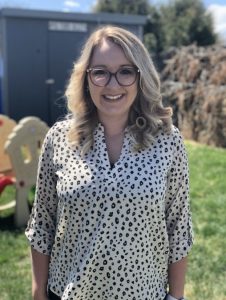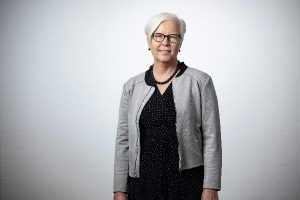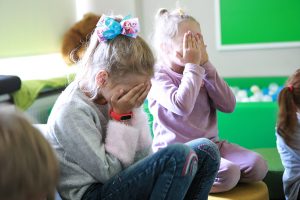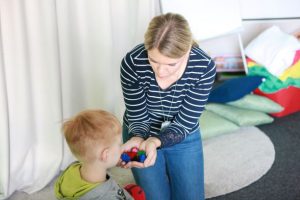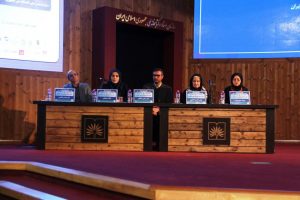In the Summer of 2019 it would have seemed impossible to believe the situation we’ve found ourselves over recent months, with locked down library services, and a pandemic affecting virtually every part of life around the globe. A year ago, we’d never heard of Covid 19 but it has certainly changed our lives in a very short space of time.
Across the United Kingdom, public library buildings remained closed as they have done around the world at various stages through the pandemic. In the UK re-opening began to appear in early July and services have dealt with the challenges of post Covid lockdown in different ways according to local needs.
UK public library services were one of the last publicly accessible networks to be closed down and staff were sent to work at home where they could at the end of March. Since then public library staff have been engaged on a wide variety of work, some related to the service and some related to wider duties within their local authorities.
The situation required a quick change in the nature of the service we offer. Whilst every library service in the country had some form of online library service, we quickly had to develop this at pace. The demand for eBooks and for eAudio materials at least tripled in many areas of the country and our public library services struggled to keep up with the demand. It has required many to find more funding to put into their online content and to increase access titles by purchasing more, as well as multiple licenses for popular materials. Online information databases and resources also became extremely important for our customers and may suppliers have relaxed access rules and provided extra facilities for us.
We continued to keep in touch with our customers – especially we knew to be vulnerable. Telephone “buddying” schemes became an important way of keeping homebound readers in touch with both library and wider services. A limited number of library services managed to maintain some small delivery operations to those most in need in their communities.
Staff in our public library services got used to delivering storytimes, book groups, activities and craft sessions and a whole host of other innovations online through social media such as Facebook, Twitter, You Tube and Instagram. These have really shown the talent of the people who work in our organisations and although at times they have created ICT challenges, library teams were incredibly innovative in working round these. In many cases, the content created was shared between services across the country to help those who have limited resources or who were asked to supply staff for other duties in their local areas. The wealth of material available for our communities to engage with has been reflected in the collation of sites and activities on a number of websites.
Through all of this Libraries Connected came into its own as a Sector Support Organisation, particularly in the first instance as a voice of concern over the lack of government guidance on the closure of public spaces.
As the situation developed, Libraries Connected helped to promote and share the good practice of its members. Working with other library and reading agencies, the organization collated content in one place to show the range of work going on, as well as sharing best practice through its online support network. Our Basecamp networks allowed us to talk to each other about the day to day challenges that we faced, providing solutions, but also just a friendly response from someone in exactly the same situation.
Now that we have passed the peak in the UK, services have been allowed to re-open but on a much more limited basis. We prepared for this by working together through “Think Ins” and a Recovery Group facilitated by Libraries Connected and Tortoise Media. Working together and taking on board the experiences of our international contacts, we developed our own Libraries Connected toolkit which was endorsed by central government. This has proved an invaluable resource for all of us as we look at the best fit of recovery for our own communities, and of course the possibilities for the future.
Many library services across the UK have adopted a “ring and read” or “click and collect” approach to recovering their services – customers can select or have books chosen for them to be collected at a static library. Some services have restored limited browsing straightaway and some have restarted their mobile library services. All this has been achieved through team and partnership working according to the needs of local communities.
We know we will never be quite the same again, and in some ways, the Covid 19 situation has forced us to develop our digital offers much more quickly than we would have been able to before. We still have many challenges as we start to consider how we maintain some of the best of the services we have developed quickly over the past months, alongside the more traditional place based offer we have always provided. Usage of services in the UK has been slow to recover and we expect this to continue whilst our customers regain their confidence. We also know that we will have to deal with significant financial challenges and challenges on the services we provide and their value. We probably all knew before Covid how important physical spaces and resources were, but the last six months has certainly confirmed that libraries provide people with places to meet, to learn and to live. Our challenge now will be to quantify the real need that we know exists for people to meet, share ideas, learn and develop together – we know the value of the public library offer but we now need to communicate this strongly and be part of the rebirth of society.
If you would like to see more of the work of the UK’s public library services over the past weeks, you can visit the Libraries From Home web page at Libraries Connected here
http://www.librariesconnected.org.uk/page/librariesfromhome
The Libraries Connected Toolkit is available here
https://www.librariesconnected.org.uk/resource/service-recovery-toolkit-2020-word
Libraries Hacked has also brought together a collection of You Tube videos which have been aired during the “Lockdown” period here
https://www.librariesathome.co.uk/
CILIP’s National Shelf Service has provided book reviews on a regular basis through the week and these can be seen here
https://www.youtube.com/channel/UCPUIqlJM0aieXdq-LxKDvWA
Text by Mark Freeman, Libraries & information Services Manager, Stockton-on-Tees Borough Council
